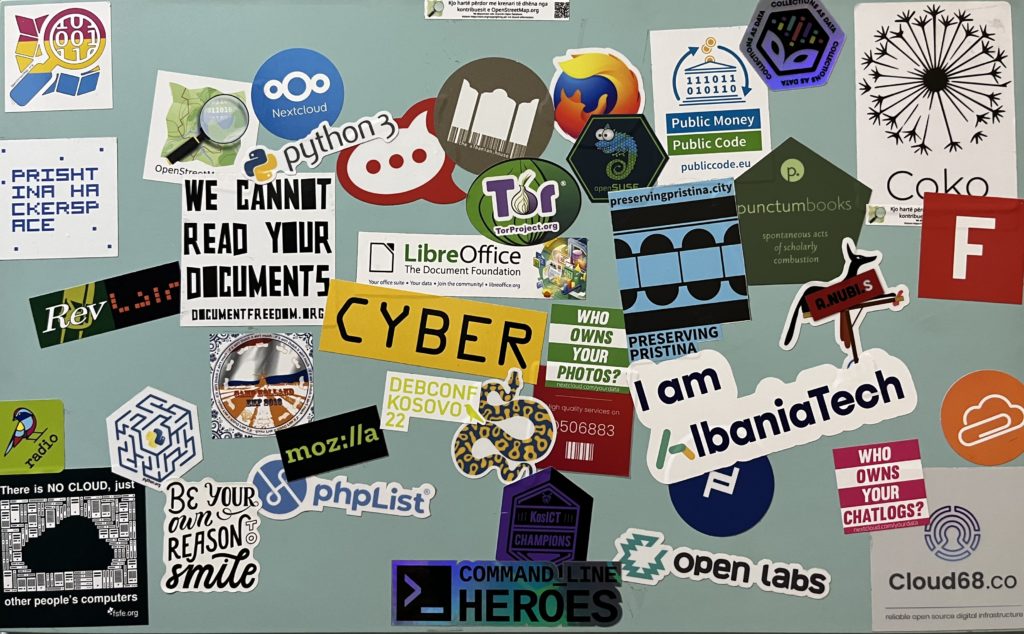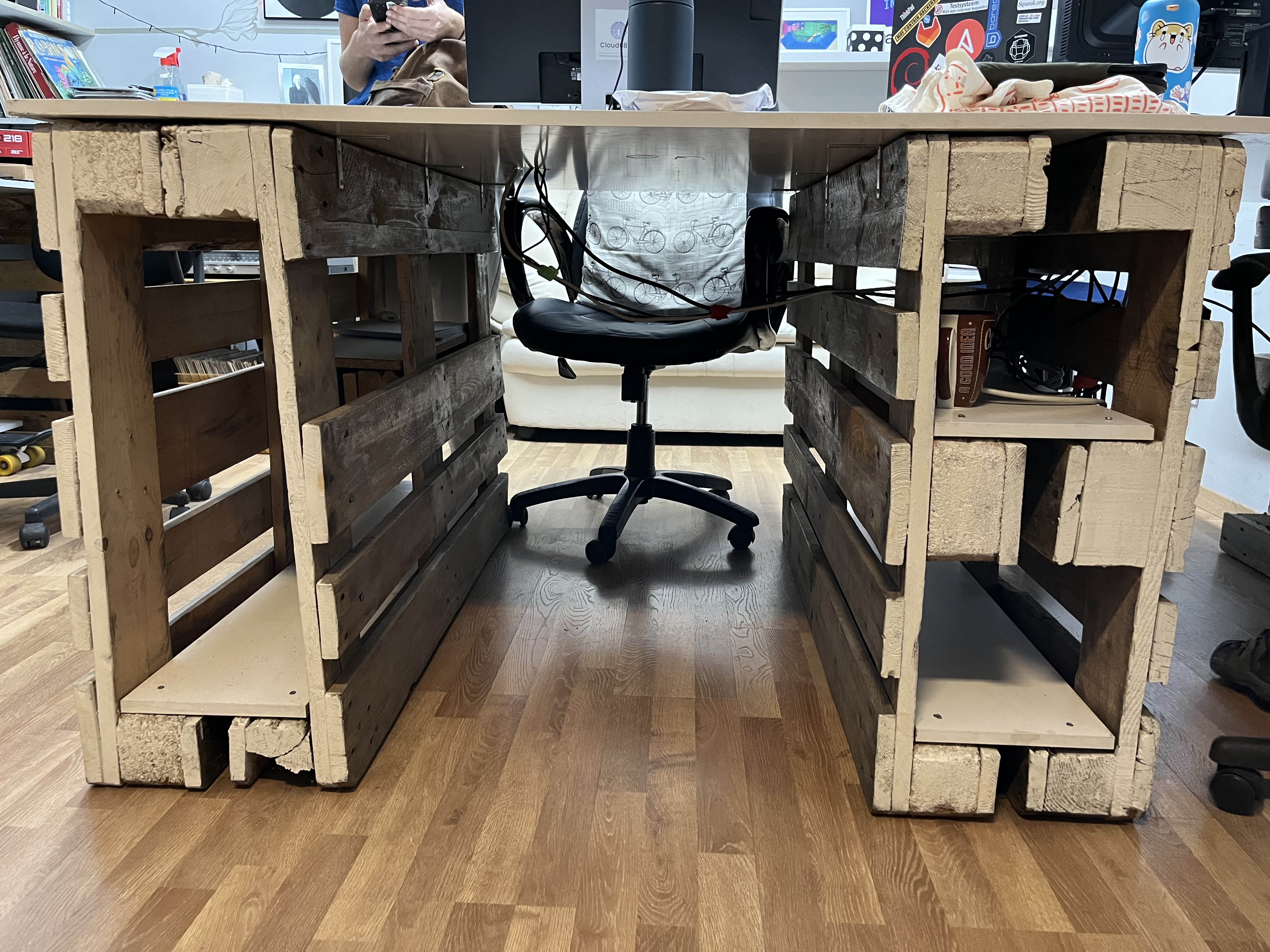
Open Source Tools for Online Organizing
Watch this conversation between Redon Skikuli of Cloud68.co and Anand Pandian of the Ecological Design Collective
Our means of communication help define whatever we make or do. Through the EDC, we’ve been seeking to build a small community for social, economic, and environmental justice. We rely on digital infrastructures for communication at a distance, on distributed networks for connection and interchange. But the convenience of mainstream corporate infrastructures for communication comes at a significant price: data stored and shared among corporate servers in far-flung places, turning individual identity and attention into commodities for sale. Often cheap or even free to use, these platforms come with fixed and pre-given architectures, promising ease of access in exchange for the willingness to give up our autonomy and identity.
When we launched the EDC in 2021, we wanted to rely on alternative forms of digital infrastructure more consistent with the spirit of ecological imagination and design, less monocultural in form, and more open to the radical thinking necessary to address the structural foundations of the ecological crisis. Our friends at the open access publisher Punctum Books connected us with Cloud68.co, an open source software company based in Tirana, Albania, and committed to communication tools that safeguard digital sovereignty and plurality. With the help of Cloud68.co, the EDC has relied on a suite of open source platforms to nurture our community and its conviviality. The good folks at the company have set up and hosted these platforms for us; helped us administer, tinker with, and develop them further; and even located more sustainably powered servers to store our data.

After countless messages, emails and video calls exchanged, it was really exciting to have the chance to visit Cloud68.co’s base of operations in Tirana, Albania this July. The cozy office space on Rruga Asim Vokshi in Tirana seemed to embody their ethos of communicative alternatives in so many ways, from the many open source software movement stickers plastered on the walls and computer workstations, to the old-style typewriter and LP record player that kept company with the newer technology as a reminder of what else remained possible. And, thanks to the sustainable design sensibilities of the company’s long-time local ally Jora Kasapi, the space was enlivened by many gestures in an environmental spirit, like the desks fashioned from disused shipping crates, and the green network of plant leaves and tendrils painted from wall to wall. It was a space that invited one to think about how to live ethically in the wider world beyond, and the essential role of digital communications in meeting that challenge.
Redon Skikuli and I sat down one afternoon for a freewheeling interview and chat that wound up being much longer than we we intended (the recording is above). But there was a lot think and talk about, and Redon spoke with passion and insight honed over many years of digital advocacy. One of the founders of Cloud68.co as well as the Open Labs Hackerspace here in Tirana, Redon had come of age working closely with artistic, political, and digital collectives of various kinds. We talked about the echoes of May ‘68 in the name that the company had chosen, and the ways in which the free and open source software movement today carried on that spirit of radical organizing. Redon took me to visit a surveillance museum in Tirana that documented the many decades of dictatorship and political repression that Albania had endured, and I asked him about the shadow of that history on their work for digital sovereignty. We talked more generally about the deceptive nature of “convenience” in corporate media profiteering, about the pitfalls of big tech and the importance of building small alternative spaces, and Cloud68.co’s vision for a future web anchored in digital commons.

We also talked very specifically about various open source alternatives to corporate digital infrastructure that Cloud68.co and other such providers can make available for online community organizing: Mastodon instead of Twitter, Nextcloud instead of Google Drive or Dropbox, PeerTube instead of YouTube, and so on. The video recording of our conversation, for example, is hosted on Cloud68.co’s PeerTube instance. Our own EDC website is built on a WordPress platform with a variety of plugins we’ve been tinkering with to suit our needs as they emerge and evolve. We rely on Mastodon for social media in addition to corporate social platforms, and with the help of Cloud68.co, our video meetings take place on an open-source webinar application called BigBlueButton instead of Zoom. We rely on Nextcloud as a file-sharing system and ProtonMail for email. With the assistance of Cloud68.co, we have also experimented with a Discourse-based forum and a chat messaging application called Mattermost, an open source alternative to Slack. All of these open source tools are worth considering and exploring.
Open source software platforms grow in a patchwork manner out of communities of mutual interest, supported by developers and users with common needs and interests, rather than as vehicles of a seamless and market-gobbling enterprise. It’s been both challenging and exhilarating for us to piece together these instances to meet our evolving needs at the EDC. This has been an improvisational and sometimes sticky process, and things have often gone in unexpected directions. But we think it’s been worth the trouble, in the spirit of what we seek to encourage in ecology and design. Please take a look at our conversation to hear more about such possibilities, and what you might make use of yourself.







The Systemic Design Association’s annual symposium will take place in hubs and online in October 2023:
ANNUAL SYSTEMIC DESIGN SYMPOSIUM, RELATING SYSTEMS THINKING AND DESIGN,
A FOUNDATION FOR THE EMERGENCE OF RESEARCH AND INQUIRY
OCTOBER 6TH–20TH, 2023
RSD12: ENTANGLED IN EMERGENCE
RSD12-ONLINE + RSD12-HUBS | ORGANISED BY GEORGETOWN UNIVERSITY, USA
https://rsdsymposium.org/
I was originally on Hetzner specifically because of their affordable prices and renewable-powered servers and I’ve recommended Cloud68’s Kotahi instance to a board member of the Design Studies Journal after their recent fallout with Elsevier. However, I moved away from Hetzner because I expected my project to scale soon and unfortunately Hetzner does not have servers running 3rd generation Intel Xeon or AMD Epyx processors clocked at 3ghz or better. AWS and Vultr are really the only options for dynamic sites with >50 concurrent users (and Vultr only offers up to 12vcpu, which caps out between 200 and 300 concurrent users). Some people use Hetzner’s Bare Metal Servers running Ryzen 5000 series processors, but those are more for gaming and do not scale vertically. That doesn’t mean that they can’t currently run that kind of site with 50 could start to cause problems on this kind of site. I find that very unfortunate and I would LOVE to return to Hetzner though! Maybe Cloud68 has enough clout with them to talk to them about competing with AWS c6i or Vultr High Frequency type servers.
Another way of putting that is if you are specifically running on a Hetzner bare metal server with a Ryzen 9 or Threadripper series processor optimized and tested to hit performance benchmarks for a dynamic site with high or inconsistent user concurrency that may work just fine. Noting that Intel Xeon processors are still more scalable, can support more memory capacity, and have larger and more advanced caching hierarchies. Also, OpenLiteSpeed is preferred over Nginx as the web server, but Apache is NOT recommended, especially with the app…
(Looking at Hetzner again today after reading this article and procrastinating on my other duties) Hetzner’s AX102 server with AMD Ryzen 9 7560X3D is definitely competitive with an AWS c6i instance and Vultr High Frequency Server. It costs a little less than AWS, but more than Vultr and is the cheapest viable option at Hetzner. The 3D V-Cache technology enhances the processor’s cache capabilities on par with Intel Xeon processors. If Cloud68 has you on that, you’re good to go!